Ditching the Sugar Habit (Without the Withdrawals)!
By Alice Osborne
 While we no longer include a NO MORE BLOOD SUGAR BLUES article in your newsletter, I still research the topic and feel compelled to beat the "eliminate-the-sugar" drum when I can because sugar is addictive, plain and simple. So I'll say it again: It's time to say "Bye-bye sweet tooth!" and learn how to break free of the constant cravings and regain control of your diet.
While we no longer include a NO MORE BLOOD SUGAR BLUES article in your newsletter, I still research the topic and feel compelled to beat the "eliminate-the-sugar" drum when I can because sugar is addictive, plain and simple. So I'll say it again: It's time to say "Bye-bye sweet tooth!" and learn how to break free of the constant cravings and regain control of your diet.
Some doctors, particularly Robert Lustig, MD, a professor of pediatrics and endocrinology at the University of California, San Francisco, think that the problem with sugar goes beyond the insulin issue (where it instructs our system to store the excess sugar as fat, and then we gain weight).
Lustig believes that the fructose in sugar is especially dangerous, because we can't DIGEST it properly. That means fructose is metabolized mainly by the liver, which works hard to try to break it down. The chronic strain too often results in type 2 diabetes as well as high blood pressure, liver problems, and cardiovascular disease, Lustig says.
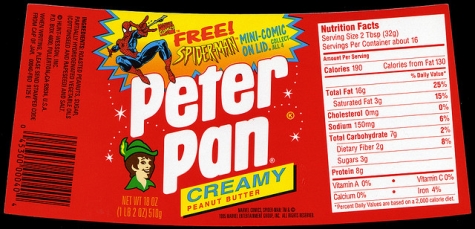
Now while most doctors agree on the "moderation in all things" mantra, "moderation" is all but impossible because food manufacturers put sugar in just about everything: salad dressing, bread, mustard, crackers, peanut butter, pasta sauce, even toothpaste! Researchers and dieticians warn that many of the so-called healthy snacks we eat regularly, like fruit-flavored yogurt, are loaded with sugar.
 The average American now consumes more than 100 pounds of sugar a year, yet most of us have no clue we're eating that much. Why do manufacturers put sugar in so many things that don't need it? The answer is simple: Most people think a product with added sugar tastes better than it does without it. But the more sweetly delicious food gets, the more nutritional value it loses (vitamins, minerals, and antioxidants), and there's next to no hunger satisfaction.
The average American now consumes more than 100 pounds of sugar a year, yet most of us have no clue we're eating that much. Why do manufacturers put sugar in so many things that don't need it? The answer is simple: Most people think a product with added sugar tastes better than it does without it. But the more sweetly delicious food gets, the more nutritional value it loses (vitamins, minerals, and antioxidants), and there's next to no hunger satisfaction.
So how much sugar should we be eating? Doctors say that no more than 8-10% of daily calories should come from added sugar. That's roughly 140 to 180 calories if you consume 1,800 a day. You're probably getting almost twice that now, so here's how to ditch the sugar without experiencing those nasty withdrawals (as suggested in a recent Fitness Magazine article):
Eat more WHOLE foods.
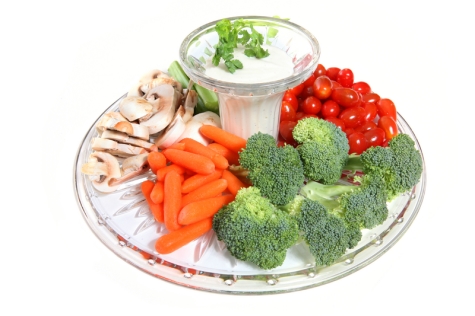
The less processed food, the less added sugar you'll get. When craving something crunchy, reach for carrots or bell pepper slices instead of crackers. And opt for a banana instead of an energy bar.
Spot the hidden sweet stuff.
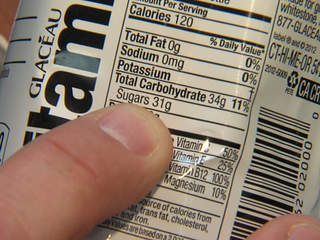
We can be bamboozled when label reading because "sugar" isn't usually called that now. Instead you'll read dextrose, sucrose, maltose, honey, molasses, maple syrup, high-fructose corn syrup, evaporated cane juice, fruit juice concentrate and agave nectar. Add the list of sweeteners up and it's often more calories than the other listed ingredients. SUGAR must be listed under nutrition information, so read labels carefully and choose foods that have no added sweeteners.
Pay attention to rank. Manufacturers have to list ingredients by weight; the more of a substance that's in a product, the closer it is to the top of the list. When the first ingredient is high-fructose corn syrup, for example, the product contains more of that than anything else.
Beware of "lightly sweetened" or "low sugar" products. This advice might sound counterintuitive, but health experts tell us there are no FDA regulations governing the use of those phrases, and their meaning is ambiguous. A product could contain almost as much sugar as the original version does. So be rigorous and look for labels that say "sugar-free" or "no added sugars."
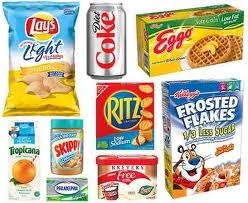
Don't go all artificial. Studies show that constantly using these sweeteners results in weight gain. They make you hungry because they give you the sweet taste but not the calories, so there's no appetite satisfaction. Limit consumption of artificial sweeteners the same way you limit your consumption of sugar.
Sip smarter. Sweetened soda, bottled tea, and fancy coffee drinks are basically liquid candy, so choose unsweetened drinks, or sip water with lemon or lime.
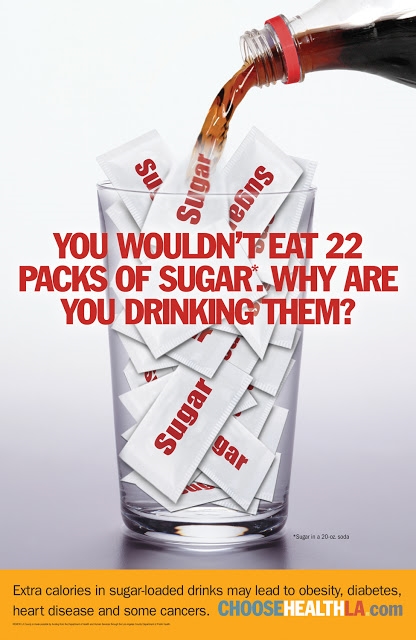
Train your tongue. Because taste buds fall in love with the taste of sugary foods, they need to get used to unsweetened stuff. Dieticians advise trying a food at least 10 times, or eating something unsweetened, like plain yogurt, mixed with the sweetened kind for a week or two, to ease into the lower-sugar lifestyle.
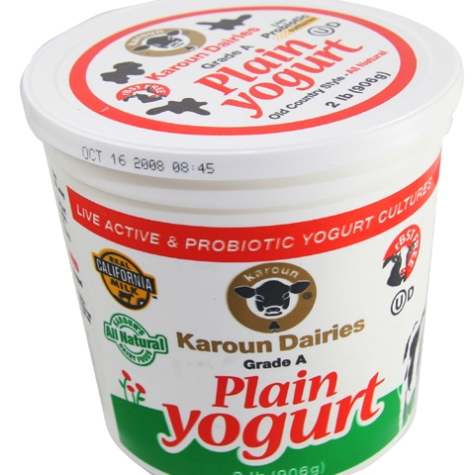
Don't skip meals. Sugar cravings result from blood sugar dropping too low due to eating irregularly, so eat regularly to prevent those cravings.
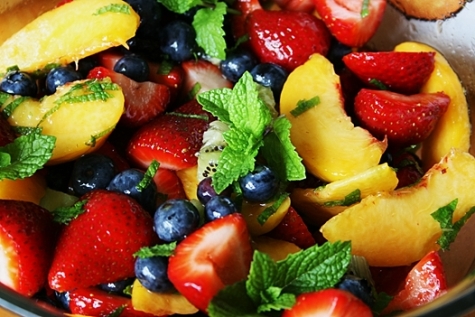
Enjoy fruity desserts. Naturally sweet, lots of filling fiber, few calories, and packed with nutrients, fruit is a super dessert choice. Strawberries with plain yogurt, fruit salad garnished with mint, or grilled peaches (cut in half, pits removed, brushed with canola oil and grilled about two to three minutes a side and served with a dollop of Greek yogurt) are a few ideas.
- www.fitnessmagazine.com
- www.flickr.com
- www.isladeangela.wordpress.com
- www.vanwich.ie
- www.abcactionnews.com
- www.rw3fitness.com
- www.rdmexpress.net
- www.kulturekaraite.blogspot.com
- www.savorysweetlife.com

Alice Osborne
Weekly Newsletter Contributer since 2006

